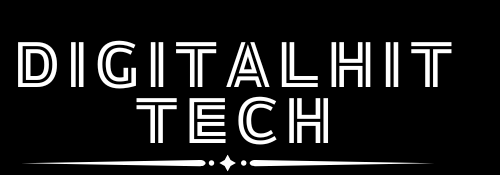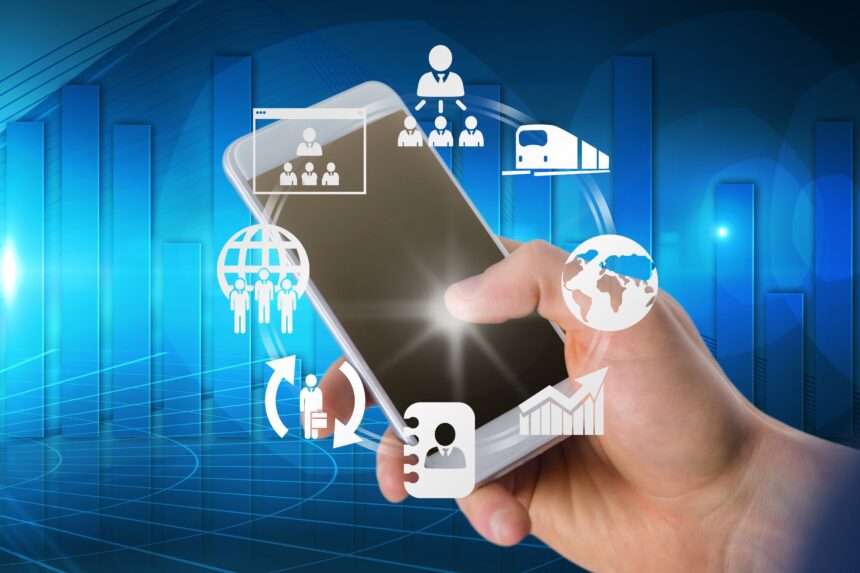Introduction
Modern life is based on connectivity. In the operations of business, as in the realms of personal relationships, the accomplishment of remaining in touch is how we act in the modern world. This connectivity has been driven by mobile data technology that has resulted in information and communication being at our fingertips. Mobile networks are now fast, reliable, and worldwide, unlike the early stages of dial-up or limited broadband. This paper discusses 12 ways mobile data technology enhances connectivity, which opens opportunities to individuals, businesses, and even communities.
-
Faster Internet Speeds
3G-4G-5G has revolutionized the user experience. Individuals can view high-definition video, download huge files, and play real-time video games without the interruption of the blistering internet rates. Besides enhancing entertainment, such high speed means that professionals will be able to exchange data on a real-time basis. In brief, the flashing links make the personal as well as the professional life more effective.
-
Trustworthy International Interaction.
Previously, international communication was costly and time-consuming. The mobile data technology has transformed that today. Voice over IP calls, instant messaging, and video conferencing enable individuals to interact between continents almost without spending a penny. Families remain in touch with each other even when they are apart, and no problems occur in running businesses across borders. Mobile connectivity is no longer a privilege; it has become a normal aspect of communication in the world.
-
Greater Business Productivity.
Mobile data helps organizations to act outside the physical offices. Traditional teams can use cloud-based applications to have meetings, share project information, and operate remotely. The result is a lower overhead and efficiency. The field sales teams are capable of updating records on the fly, and managers can track operations in real time. Mobile data technology makes sure that work does not cease, wherever one goes.
-
Better Access to Education
Mobile learning has been remarkable in the education sector. Remote students are able to participate in online classes, access electronic textbooks, and access collaborative platforms. Mobile data is also used by teachers to share resources and record lectures, as well as guide students in virtual learning environments. This has resulted in inclusive education wherein anyone with a mobile phone can learn regardless of his or her location.
-
Better Healthcare Services.
Another area that has been changed through mobile data technology is healthcare. Telemedicine sites allow patients to see doctors without stepping into a hospital. Doctor reports can be posted, prescriptions distributed, and emergency guidance provided in minutes. This is a game-changer for the rural communities since they can now get the necessary health services closer. Mobility facilitates the reduction of barriers to make healthcare quicker and more available.
-
Support for Smart Devices
Mobile data is a crucial element of the emergence of the Internet of Things (IoT). Mobile data follows the home appliances linked through applications to smart watches monitoring health. This enables a smooth automation of activities like the setting of lights, temperature regulation, or fitness monitoring. Mobile data technology thus simplifies normal life and makes it easier.
-
Empowerment of Remote Work
Mobile data would not allow remote work. Zoom, Microsoft Teams, and Slack are some of the collaboration technologies that staff members utilize to communicate with their teams. Its deadlines are achieved even when workers are located in different time zones. This is flexible to the interest of both the employers and employees, as it saves time and cuts down on the expenses of travelling. The hybrid and remote working culture that is in place today is based on mobile data.
-
Effective transportation and mobility.
Travelers today depend on GPS-powered Mobile applications. Mobile data technology enables the provision of real-time information on routes, traffic, and other routes. Ride-hailing apps such as Uber and Careem also require stable mobile networks that tend to connect drivers and passengers. This efficiency ensures that these millions of commuters have easier travels, reduce their travel time, and enhance safety daily.
FAQ’s
Q1: How can mobile data technology influence communication?
It facilitates quicker communication, video conferencing, and connectivity worldwide, thus making communication smooth and effective.
Q2: Is remote learning sustainable with mobile data technology?
Yes, it provides students and teachers with online classes, e-libraries, and collaboration platforms.
Q3: Is mobile data relevant to businesses?
Absolutely. By enabling cloud storage, real-time communication, and distant activities, it boosts productivity.
Q4: In an emergency, what will the mobile data be used for?
It provides alerts, assists in the coordination of rescue teams, and provides real-time updates to citizens in cases of crisis.
Conclusion
Mobile data technology is not only a network service, but it is also a world savior in connectivity. It enhances communication and industries and adds value to day-to-day living in numerous ways. Mobile data is still broadening the horizons in healthcare and education, as well as in remote working and financial services. The role of mobile data technology in enhancing connectivity in the world will become even more imperative as the world advances further into the digital future. It not only connects the devices but also connects people, ideas, and possibilities to make the world smarter and more inclusive.








Hey from SeoBests,
Increase your website’s SEO performance, improve your search visibility and gain powerful backlinks!
Buy the leading SEO services all on one platform – SeoBests.com
View current SEO sales:
50% OFF Monthly SEO Backlinks + Up To 5,000 Backlinks FREE:
https://tiny.cc/seobests-sales
Choose from various SEO services, 100+ items online, and quality specialists.
SeoBests.com – your top quality SEO backlinks provider.
Want to avoid overcrowded markets and dragging content creation? 342 prompts for cozy creative books provides a {complete|ready|fully prepared|wel
https://5sq4ek.site/CozyColoringBooks?digitalhittech.com
{You are receiving this message|You’re receiving this email|This message is sent to you|You received this notification|You are getting this email}
{because we believe|because we think|as we believe|as we think|since we believe|since we think}
{our offer|this offer|the offer we provide|what we’re offering}
{may be relevant to you|could be relevant to you|might be of interest to you|may interest you|could be useful to you}.
{If you do not wish to receive|If you don’t want to receive|If you would prefer not to receive|If you no longer wish to get}
{further communications from us|future messages from us|additional emails from us|any more messages from us},
{please click here to|you can|simply}
{unsubscribe|opt out|unsubscribe from these emails|stop receiving emails}:
https://5sq4ek.site/unsub?domain=digitalhittech.com
Address: Address: 8024 Fehringer Strasse 19, BURGENLAND 9161
Looking out for you, Corinne Whipple.
Think about owning a professionally assembled website about pets — one of the most popular fields online — that is prepared for use right away. This setup gives you a complete WordPress site with prepared articles, product overviews, digital materials, and included engagement tools, so you skip writing content, technical setup, and design tasks entirely.
https://novaai.expert/PetAuthorityFortune?digitalhittech.com
If you are done with wasting time creating sites manually, figuring out site growth methods, and creating every text manually, this solution helps you create a real digital asset that receives ongoing attention, creates trust, and develops gradually.
https://novaai.expert/PetAuthorityFortune?digitalhittech.com
You are receiving this message
since we believe
our offer
might be of interest to you.
If you do not wish to receive
any more messages from us,
you can
unsubscribe:
https://novaai.expert/unsub?domain=digitalhittech.com
Address: Address: 2723 Ul. Paderewskiego 141, NA 83-004
Looking out for you, Gertie Sparrow.
Exhausted by spending weeks creating info products with no sales? Introducing the 2026 Business Bundle — seven ready-for-sale digital products with PLR licenses you can quickly rebrand and start selling as your own. No guessing involved — it’s market-tested content across evergreen niches, from AI video courses to side hustle guides and health-focused assets, all proven to convert.
https://6v9sfq.site/ChristmasProfitBundle?digitalhittech.com
Bypass the long creation grind: get access to, adapt, and go live on platforms like Etsy, Gumroad, Shopify, or your own funnels. Turn visits into revenue as early as January with ready products people are already looking for.
https://6v9sfq.site/ChristmasProfitBundle?digitalhittech.com
This message is sent to you
because we believe
the offer we provide
could be useful to you.
If you do not wish to receive
further communications from us,
please click here to
unsubscribe from these emails:
https://6v9sfq.site/unsub?domain=digitalhittech.com
Address: Address: 4220 Galjoen 82, FL 8243 Lt
Looking out for you, Cyrus Guzman.
Think about working with an extensive collection of prebuilt mystery story outlines that smoothly can be used as products families and educators often use — learning books, activity packs — while avoiding starting from scratch. It’s not simply a loose idea collection. This is a structured prompt pack with clear frameworks that helps you create engaging young readers’ stories in a short time, rather than weeks.
https://6pr5pg.site/StoryPromptsDetective?digitalhittech.com
For a webmaster, digital creator, or KDP publisher, that means focusing on an evergreen children’s niche with consistent interest, producing many content pieces from a single base and supporting reliable income paths. Interested in a clear way to create and publish young readers mystery stories without needing long creation timelines? Open the page to see the details.
https://6pr5pg.site/StoryPromptsDetective?digitalhittech.com
You are receiving this message
because we think
the offer we provide
could be useful to you.
If you do not wish to receive
additional emails from us,
you can
opt out:
https://6pr5pg.site/unsub?domain=digitalhittech.com
Address: Address: 6515 987 Bernardo Street, IN 47591
Looking out for you, Elliott McLarty.
Imagine if it would be possible to turn an initial concept into a stable result flow without ever using any piece of code? This platform offers a structured sequential process to build, publish, and operate app-based products listed on major app marketplaces. There are no engineering obstacles, no third-party teams — only a transparent path connecting concept to a functional mobile product, a format commonly used by seasoned publishers to gain a stronger position within the mobile software space.
https://are-toto03.site/MeeloAppEmpire?digitalhittech.com
You are receiving this message
as we believe
this offer
might be of interest to you.
If you do not wish to receive
future messages from us,
please click here to
opt out:
https://are-toto03.site/unsub?domain=digitalhittech.com
Address: Address: 1006 62 Baker Street, WA 6330
Looking out for you, Lily Wragge.
World’s First AI App That Creates
Cinematic Clips, Shorts & Reels Completely Hands-Free
In 100s Of Language – In Just 60 Seconds
https://bwzph2rqzdyw7vuh.site/MagicClipsAI?digitalhittech.com
You are receiving this message
as we believe
this offer
may interest you.
If you don’t want to receive
further communications from us,
please click here to
stop receiving emails:
https://bwzph2rqzdyw7vuh.site/unsub?domain=digitalhittech.com
Address: Address: 3549 Generaal Cronjestraat 175, NH 2021 Jd
Looking out for you, Mamie Meek.
Why do some books sell millions of copies while others fail?
The answer isn’t luck. It’s Psychology.
The book that currently dominates the charts—selling over 272 copies daily—was built on a very specific scientific foundation. It took deep behavioral principles and simplified them into “Tiny” steps.
https://center303-center303.site/TinyActionBooks?digitalhittech.com
You received this notification
since we believe
this offer
might be of interest to you.
If you don’t want to receive
further communications from us,
please click here to
unsubscribe:
https://center303-center303.site/unsub?domain=digitalhittech.com
Address: Address: 2053 4332 Libby Street, CA 90025
Looking out for you, Ambrose Macdermott.
Apple HATES This… But They Can’t Stop Me From Showing You How I Built A Money-Making App In 12 Minutes
Now I’m Handing You The Exact System To Do The Same — Zero Coding Required
https://bandardewi8.site/MeeloAppEmpire?digitalhittech.com
You are receiving this message
as we believe
the offer we provide
may be relevant to you.
If you do not wish to receive
additional emails from us,
please click here to
unsubscribe from these emails:
https://bandardewi8.site/unsub?domain=digitalhittech.com
Address: Address: 2356 Goethestrasse 51, CARINTHIA 9413
Looking out for you, Karl Grant.
Imagine launching a viral, faceless
YouTube, TikTok, or Instagram channel
in just minutes…
(And Then Your new Channel
automatically Creates AND posts videos FOR YOU…
So you NEVER HAVE TO TOUCH IT, AGAIN?)
This is 100% AUTOMATED, so once you set it up, you never have to lift a finger!
https://cola52.site/TrafficSupernova?digitalhittech.com
You are getting this email
since we think
our offer
might be of interest to you.
If you do not wish to receive
further communications from us,
simply
unsubscribe from these emails:
https://cola52.site/unsub?domain=digitalhittech.com
Address: Address: 1344 Wiehtestrasse 46, UPPER AUSTRIA 4511
Looking out for you, Nick Rodgers.
World’s First AI Agent Powered By ChatGPT-5…
That Writes And Ranks Anything We Want… On The First Page Of Google… With ZERO SEO. And Zero Ads…
https://www.youtube.com/@AISolutionsTop
Trend Hunter AI gives you Real-Time Data
To Create Hot-Selling Amazon KDP eBooks
That Pay You Monthly Royalties for Years To come…
https://cr1y5t.site/TrendHunterAI?digitalhittech.com
This message is sent to you
as we believe
what we’re offering
might be of interest to you.
If you no longer wish to get
additional emails from us,
please click here to
unsubscribe from these emails:
https://cr1y5t.site/unsub?domain=digitalhittech.com
Address: Address: 5548 Rue De La Poste 287, WHT 7390
Looking out for you, Frankie Funderburk.
What If You Could Teach Any Topic Online…
Without Being a Subject Expert?
https://connectwithseo.site/AIProfessor?digitalhittech.com
This message is sent to you
as we think
our offer
could be relevant to you.
If you don’t want to receive
additional emails from us,
you can
stop receiving emails:
https://connectwithseo.site/unsub?domain=digitalhittech.com
Address: Address: 5844 Via Corio 131, VA 21100
Looking out for you, Jens Pownall.